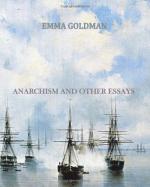|
This section contains 9,402 words (approx. 32 pages at 300 words per page) |

|
SOURCE: “Human Nature and Anarchism,” in For Anarchism: History, Theory, and Practice, edited by David Goodway, Routledge, 1985, pp. 127-49.
In the following essay, Marshall considers the anarchist theories of William Godwin, Max Stirner, and Peter Kropotkin, and offers his own critique of the concept of human nature.
Critics of anarchism, indeed of any attempt to expand freedom, have repeatedly fallen back on the tired argument that it is against ‘human nature’. The conventional wisdom amongst historians of political thought is that anarchists have an optimistic view of human beings as being naturally good and that it is only the state that produces evil in people. Abolish the state, they believe anarchists assert, and society will achieve a condition of perfect harmony. Convinced of the need for political authority, they argue that in reality the opposite would occur; without the state, society would collapse into the Hobbesian nightmare of...
|
This section contains 9,402 words (approx. 32 pages at 300 words per page) |

|


